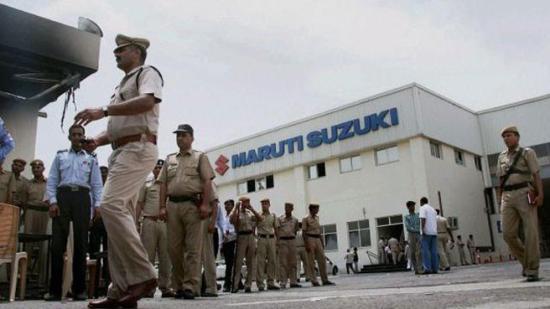
For three decades, more than half the vehicles - two-wheelers as well as cars - sold in the country have come from five factories in the industrial belt of Gurgaon and Manesar in Haryana.
Maruti Suzuki, the country's largest car maker, has one factory at Gurgaon and another at Manesar. Hero MotoCorp, owned by the Munjal family, too, has two factories here. And Honda Motorcycle & Scooters has a unit at Manesar.
It was an inland production hub, which could have made imported parts prohibitively expensive. But, over the years, these companies aggressively localised their component purchases, thereby reducing the dependence on imports.
Since these ventures were primarily meant to service the Indian market, and not to export to distant countries, the huge distance from ports didn't really matter.
As a result, there developed around Gurgaon and Manesar a large army of component makers. As companies such as Maruti Suzuki and Hero gained scale, these suppliers too became bigger and bigger.
As many as 200 large to mid-size component units came up in the region on an investment of $ 3-4 billion. The turnover of the industry is estimated at least $15 billion per annum, and it provided employment to 800,000 people.
...
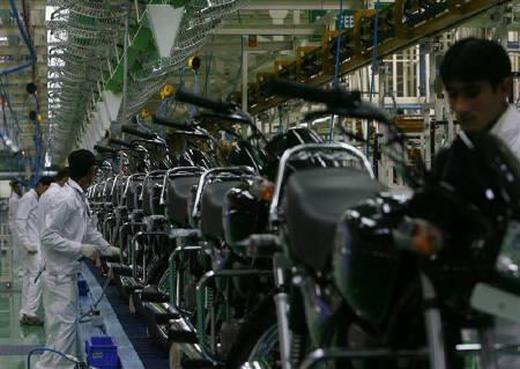
Many of the component kings of Gurgaon-Manesar, Surinder Kapur of the Sona group, for instance, have even ventured abroad.
However, recent developments threaten to put the brakes on their growth here.
Component makers follow car and two-wheeler makers. And newcomers like Hyundai, General Motors, Ford, Renault-Nissan and Volkswagen have chosen to go to new automotive hubs like Chennai and Pune.
Tata Motors has located the factory for its Nano at Sanand in Gujarat. Other car makers too have talked of investing in the state.
Ford, for instance, has committed investments of Rs 4,000 crore (Rs 40 billion) for a second unit in the state. Even the big names of Gurgaon-Manesar have begun to look at newer destinations.
Maruti Suzuki, controlled by Japan's Suzuki Motor Corp, recently decided to set up its third factory, to be built at a cost of Rs 4,000 crore (Rs 40 billion), near Mehsana in Gujarat. The company is also on the lookout for land for its fourth plant in the same vicinity.
Hero MotoCorp had set up its third factory at Haridwar in the tax haven of Uttarakh#8743 it has now zeroed down on Rajasthan and Gujarat for its fourth and fifth plants, respectively.
...

The combined investment on the two plants will be around Rs 1,500 crore (Rs 15 billion). Honda's second plant is up and running in Rajasthan, and the third will come up in Karnataka.
Shifting out
What's aiding the change?
While Maruti Suzuki and Hero MotoCorp executives say proximity to the Mundra port in Gujarat would help them in realising their export potential, industry experts do not rule out the role of the regions' growing labour troubles in precipitating these investment decisions.
Over the past two years, labour troubles have caused serious setbacks for auto companies. The latest labour standoff is on at Hero MotoCorp.
The workers and the management at the company's Gurgaon unit have been struggling to converge on the terms of a three-year wage pact for over six months now.
Last year, Maruti Suzuki suffered a prolonged shutdown. In all, four instances of unrest since June 2011 at Maruti Suzuki have led to a production loss of 160,000 units and a revenue loss of about Rs 5,000 crore (Rs 50 billion).
More significantly, the standoff on July 18 last year turned violent, leaving a senior executive dead.
Honda, too, has had its share of labour trouble. In 2005, more than 150 people were injured in violent clashes between the police and the workers agitating for higher wages at its Manesar facility.
...
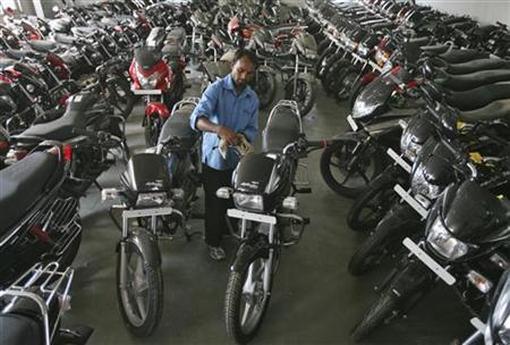
In 2009, the company downed shutters for three months when workers erupted in protest again. As a result, during July to October that year, utilisation levels had dropped to less than 50 per cent.
Honda had alleged the workers were slowing down production to push through their claims for higher wages.
The workers' unions resorted to the same tactics at vendors Rico Auto, Sunbeam Auto and other ancillary companies, leading to a huge order pile-up.
Honda incurred losses of around Rs 300 crore (Rs 3 billion) due to the tussle and order backlog shot up to 160,000 units. It was hardly a surprise then when Honda chose to set up its second unit in Tapukara (Rajasthan).
The company decided at starting anew and in proximity to Haryana so that it could leverage its existing vendor base, say industry experts.
A promising South
However, its southward shift for its third plant is more demand driven.
"As much as 30 per cent of the demand in the overall two-wheeler market comes from Tamil Nadu, Andhra Pradesh, Kerala and Karnataka. Together, south and west India represent half of our business. It is a natural decision to move south to ensure speedy delivery of our products," Shinji Aoyama, the former CEO of Honda, had recently told Business Standard.
...
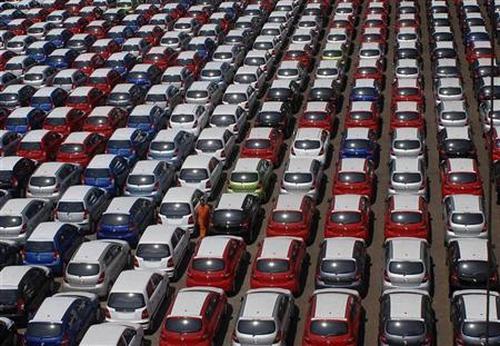
Deepesh Rathore, managing director of auto consultancy, IHS Automotive India, says the reasons for the shift may not necessarily be the recent infamy the region has gained as a strife-prone zone.
He says, given the current scale of operations of manufacturers such as Maruti Suzuki, Hero MotoCorp and Honda in the Gurgaon-Manesar region, it doesn't make sense for them to invest in the same place.
As they already have substantial presence in the region, they might want to spread to new hubs to cut down logistics costs.
Another factor for the shift could be strategic. Both Maruti and Hero have ambitious plans to grow their footprints overseas and, therefore, Gujarat and Chennai for their proximity to ports are gaining favour.
However, Rathore admits the labour issues may "definitely have acted as a catalyst".
New entrants, he says, would be wary of investing due to its poor track record on labour issues. "For new entrants, the incidents of labour unrests which have happened in Haryana are a big deterrent."
"Even a few weeks of disruption in production translates into huge losses on the revenue front. The labour issues facing the region have caused irrevocable damage to the Gurgaon-Manesar belt," says he.
...
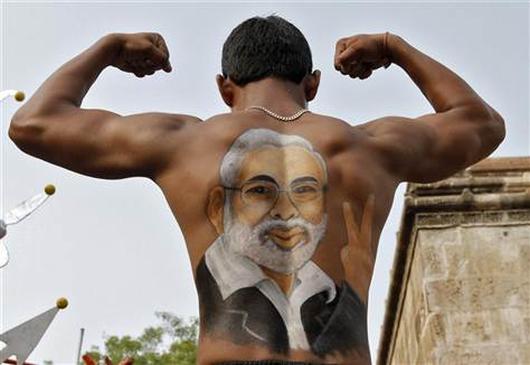
For local and global companies, a key consideration in ranking area attractiveness is labour relations.
"Clearly, a history of continued labour unrest does not bode well for capacity expansion or new greenfield projects," adds Wilfried Aulbur, managing partner of leading international advisory firm Roland Berger Strategy Consultants.
Successive wage negotiations have also made labour in the belt expensive. As wages have risen, the belt has lost its competitive edge. This has played an important part in pushing car and two-wheeler makers to new automobile hubs in the country.
Among the new automobile hubs, Gujarat is emerging as the most prominent one. Maruti Suzuki's twin facilities in Mehsana along with its suppliers will bring in investments worth Rs 16,000 crore (Rs 160 billion) to the state.
It's a win-win for both the state and the investors.
For Maruti Suzuki, proximity to Mundra will reduce freight costs as freight rates here are more competitive than Nava Sheva's in Mumbai.
Gujarat's investment climate is the other big draw. There is a perception that the Narendra Modi-led government is more pro-active in clearing projects, says a senior executive at Maruti Suzuki.